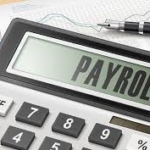As an employer, it is your responsibility to deposit federal income tax withheld for your employees pay as well as both the employer and employee portions of social security and Medicare taxes. However when are you to make the deposits and how do you make them? Also, what are the penalties for making deposits late? Well, read on my friend to learn the answers to your questions.
When To Deposit
There are two schedules for determining when you deposit payroll taxes. These schedules (monthly and semi-weekly) tell you when a deposit is due after a tax liability arises (for example, when you have a payday). The deposit schedule you must use is based on the total tax liability you reported on IRS Form 941 during what is known as the lookback period. Your deposit schedule isn’t determined by how often you pay your employees.
So what is the lookback period? If you’re a Form 941 filer, your deposit schedule for a calendar year is determined from the total taxes reported on Forms 941, line 10 (line 12 for quarters beginning after December 31, 2016), in a 4-quarter lookback period. The lookback period begins July 1st and ends June 30th. If you reported $50,000 or less of taxes for the lookback period, you’re a monthly schedule depositor; if you reported more than $50,000, you’re a semiweekly schedule depositor.
For example, the following would be the lookback period for calendar year 2019:
- July 1, 2017 – September 30, 2017
- October 1, 2017 – December 31, 2017
- January 1, 2018 – March 31, 2018
- April 1, 2018 – June 30, 2018
Now what if you are a new employer? Your tax liability for any quarter in the lookback period before you started or acquired your business is considered to be zero. Therefore, you’re a monthly schedule depositor for the first calendar year of your business.
Monthly Deposit Schedule
Under the monthly deposit schedule, an employer deposits employment taxes for payroll made during a month by the 15th day of the following month. So for example, the payroll taxes for you August payroll would need to be deposited by September 15th.
Semiweekly Deposit Schedule
Under the semiweekly deposit schedule, deposit employment taxes for payrolls processed on Wednesday, Thursday, and/or Friday by the following Wednesday. Deposit taxes for payments made on Saturday, Sunday, Monday, and/or Tuesday by the following Friday.
How To Deposit
You must use the Electronic Federal Tax Payment System (EFTPS) to make your deposits. If you don’t want to use EFTPS, you can arrange for your tax professional, financial institution, payroll service, or other trusted third party to make the deposits on your behalf. FTPS is a free service provided by the Department of Treasury. To get more information about EFTPS or to enroll, you can visit the EFTPS website or call 1-800-555-4477.
If you’re a new employer that indicated you might have payroll tax liabilities when you requested an EIN, you’ll be pre-enrolled in EFTPS. You’ll receive information about Express Enrollment in your Employer Identification Number (EIN) Package and an additional mailing containing your EFTPS personal identification number (PIN) and instructions for activating your PIN. Call the toll-free number located in your “How to Activate Your Enrollment” brochure to activate your enrollment and begin making your payroll tax deposits. If you outsource any of your payroll and related tax duties to a third party payer, such as a PSP or reporting agent, be sure to tell them about your EFTPS enrollment.
Deposit Penalties
If you don’t make required deposits on time or if you make deposits for less than the required amount, you might be subject to penalties. The penalties don’t apply if any failure to make a proper and timely deposit was due to reasonable cause and not to willful neglect. If you receive a penalty notice, you can provide an explanation of why you believe reasonable cause exists.
For amounts not properly or timely deposited, the following penalty rates apply:
- 2% – Deposits made 1 to 5 days late.
- 5% – Deposits made 6 to 15 days late.
- 10% – Deposits made 16 or more days late, but before 10 days from the date of the first notice the IRS sent asking for the tax due.
- 10% – Amounts that should have been deposited, but instead were paid directly to the IRS, or paid with your tax return.
- 15% – Amounts still unpaid more than 10 days after the date of the first notice the IRS sent asking for the tax due or the day on which you received notice and demand for immediate payment, whichever is earlier.
Do You Have Payroll Tax Issues?
Have you failed to file payroll tax returns, make payroll tax deposits or received an IRS notice that you don’t know how (or want) to deal with? Give us a call at 844-829-3788 NOW to put us to work for you. We can help you resolve your payroll tax matters so you can get back to running your business.

